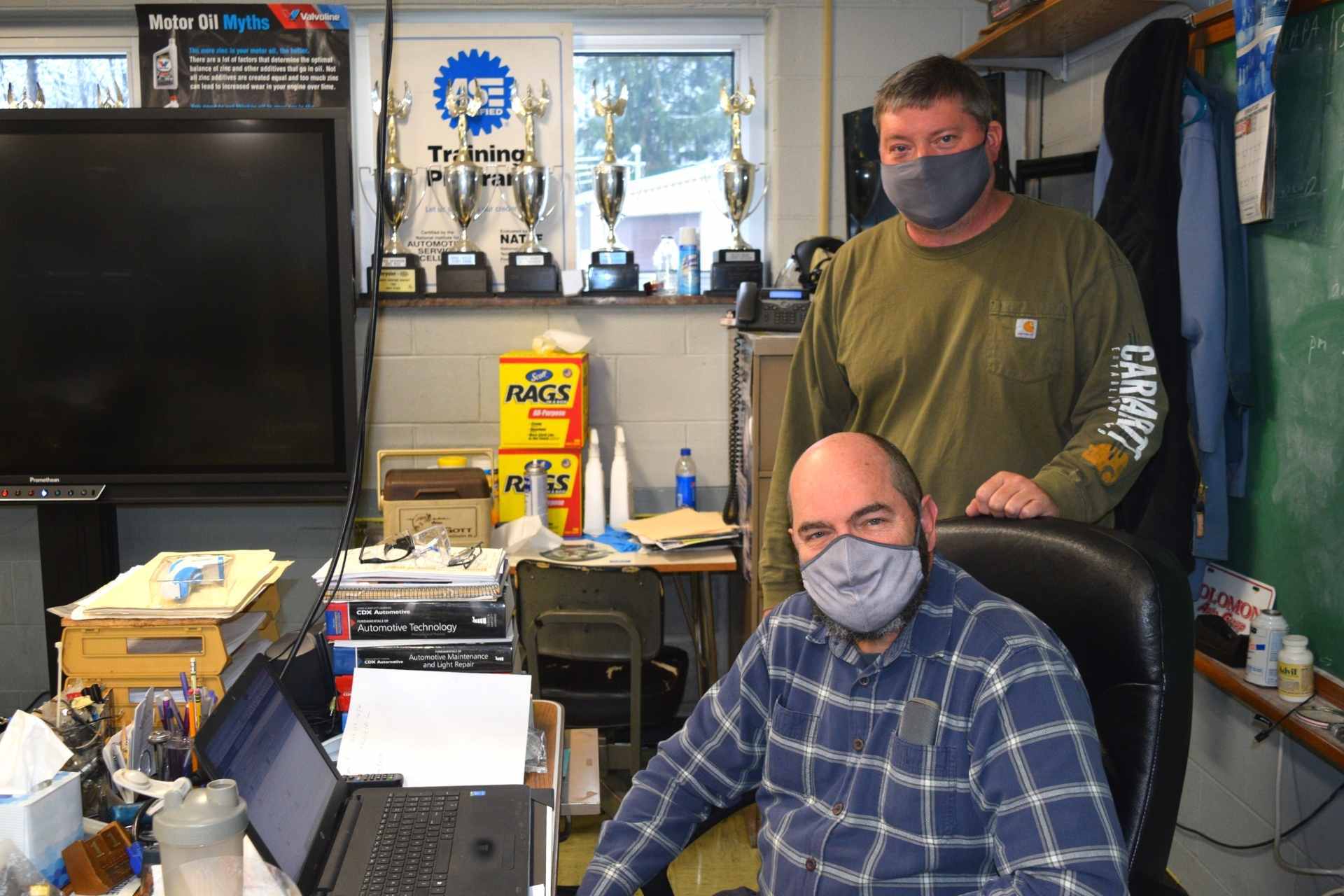Automotive technology is a rapidly evolving field as the vehicles we drive now rely on a mix of tried-and-true mechanical systems and modern electrical and computer components. That changing landscape makes the Automotive Technology program at Fred Eberle Technical Center vital for preparing the next generation of technicians.
Instructors Terry Ervin and Tim Turner outlined the program and how it trains students to enter the workforce. Ervin assumed the lead role in FETC’s Automotive Technology program when Turner moved to a different FETC program earlier this school year.
The aim of the automotive technology program at FETC is to take students who have no experience and bring them to the point where they will be ready for an entry-level or higher position in the field.
“It gets students to the place where they can perform basic service and allows them to learn enough to get into a mid-level automotive technology technician slot,” Turner said. “Those having the desire can move up to master level technicians.”
Ervin said the way vehicles are evolving, FETC is looking for students who can diagnose problems and offer solutions that go beyond the basics.
“The industry is looking for folks to do things like electrical work as well as diagnose problems,” Ervin said. “There is still a need for basics, but the technology is evolving quickly.”
The country is facing a national shortage of automotive technicians, the instructors noted.
“There is a shortage of automobile and light truck technicians,” Turner said, adding that the shortage has been growing for more than 30 years. “There are service technicians and it goes all the way up to master technicians. The salary scales grow with experience, and those who are master technicians can make six figures, even in this area. But it takes someone who understands that cars now are literally driving themselves.”
Turner said one of the higher ups at Google said a few years ago that “Children born this year – 2017 – will never drive a car.”
“It means when they are old enough to drive, the car will drive itself,” Turner said.
Another need is for folks to work on electric vehicles, which are quickly becoming more popular.
As Ervin assumes the helm of the automotive technology program at FETC, he comes armed with unique first-hand knowledge — he completed the program himself as student.
“I am excited to give back and be able to impart what I have learned over the years and to share the experience I have gained,” Ervin said. “It’s great to be able to pay it forward.”
Turner said if young folks are looking for a great career, the automotive technology program at FETC should be one to consider.
“Take a real look at this,” he said. “Years ago when I got into it, it was more of a job than a career, but nowadays there are people making a real good living as automotive techs.”
Kaleb Messenger, a senior at Buckhannon-Upshur High School, said he selected the automotive technology program at FETC because everyone needs to know how to work on their vehicle. He has since learned hundreds of useful skills.
“You come in here and it not only teaches you how to fix things, but how to use critical learning skills,” he said.
